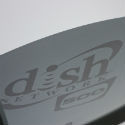
Although the FCC reportedly voted to block Dish Network's access to discounted AWS-3 spectrum licenses, some analysts are arguing the development is actually a good thing for the company.
"Dish doesn't have a likely downside here," argued the financial analysts with New Street Research in a note to investors over the weekend.
Others agreed. For example, the financial analysts at LightShed Partners wrote that an FCC ruling on the topic paves the way for Dish to take the issue to court, where the company has a good chance of winning.
"It could take years for the D.C. Circuit [court] to rule, but ultimately a panel of judges could order the FCC to recognize the [discounted spectrum] bidding credits" at the heart of the issue, the LightShed analysts wrote late last week. "That would mean the return of that spectrum [to Dish] and presumably a refund of the $516 million default [auction] payment. We believe that is the most likely outcome. The facts are clearly on the side of Dish."
At issue are two bidding entities called Northstar Wireless and SNR Wireless that bought $13.3 billion worth of AWS-3 spectrum in the FCC's 2015 auction. SNR and Northstar qualified as "designated entities," or DEs, which made them eligible for a 25% discount intended for small businesses.
However, the FCC ruled that the two DEs should not receive that discount because they were financially too close to Dish – a decision that Dish has been working to overturn.
The issue has been bouncing between regulators and lawyers for the past five years – although reports last week indicated the FCC again rejected Dish's latest attempt to gain the discount and the AWS-3 spectrum licenses tied to it.
Interestingly, the FCC has so far issued a terse "no comment" on whether it has officially acted on the AWS-3 discount. And some analysts called the US agency's actions into question, arguing it has unnecessarily delayed an important decision on spectrum amid a "race to 5G" with China.
But now that the agency has reportedly moved forward on the topic, the analysts at New Street believe Dish has a "decent chance" to win back the discount, and the AWS-3 spectrum licenses it relinquished as part of the debate, by taking the issue to court.
"The market should understand that Dish and the DEs have a good chance of prevailing in court," they wrote.
Other analysts, though, offered a slightly more inhospitable outlook for Dish.
"There is a 'worst case scenario' for Dish that, while highly, highly unlikely, shouldn't be entirely dismissed," wrote the financial analysts at Wells Fargo in a note to investors. "The FCC could theoretically attempt to deem Dish as unfit to own any spectrum licenses and attempt to claw back ownership of the +110MHz of spectrum Dish currently owns. In that draconian scenario, Dish's 5G ambitions would be imperiled.
"It's certainly a long shot outcome, but Charlie Ergen and Dish are not exactly the most popular folks at the FCC right now."
Dish, for its part, continues to move forward with plans to construct a 5G network using spectrum licenses outside of its debate with the FCC. However, if the company is ultimately successful in gaining the AWS-3 licenses under debate, it would likely add that spectrum to its 5G ambitions.
Related posts:
— Mike Dano, Editorial Director, 5G & Mobile Strategies, Light Reading | @mikeddano
About the Author(s)
You May Also Like












